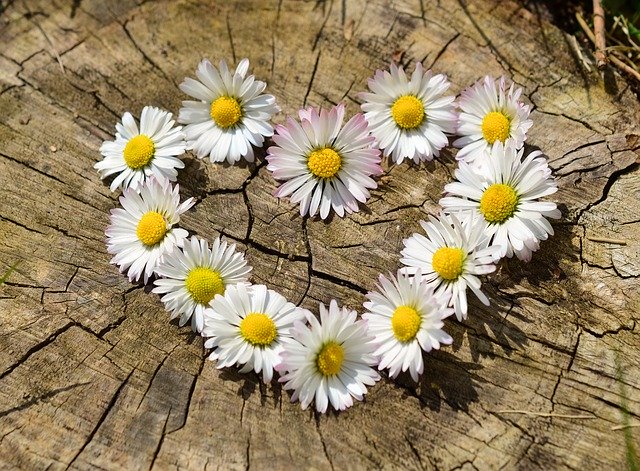The therapeutic garden, a place of expression
Bienvenue à nouveau sur Plus de vert less béton ! Si c'est la 1ère fois que tu viens ici, sache que je mets à ta disposition un bonus entièrement gratuit qui t'explique "comment créer un jardin thérapeutique à moindre coût" clique ici pour télécharger le bonus gratuitement ! 🙂
Bienvenue à nouveau sur Plus de vert less béton ! Si c'est la 1ère fois que tu viens ici, sache que je mets à ta disposition un bonus entièrement gratuit qui t'explique "comment créer un jardin thérapeutique à moindre coût" clique ici pour télécharger le bonus ! 🙂
From its conception to its occupation, through its horticultural workshops, the care garden should be made for and WITH the patients, the beneficiaries. I generally prefer to call them « gardeners », for its more inclusive (patients, relatives, caregivers or volunteers) and less stigmatizing side. The inclusion of the latter from the start of each project allows a better appropriation of the garden in the making and its future use as an aid to therapy. There is no question of returning to these aspects. No, today I propose a more psychological vision, noting the points that make the therapeutic garden a place of expression for the beneficiaries.
What's the expression?
Let’s start from the bottom up by looking at the definition of the expression:
The expression is: « The act of expressing something, of communicating it to others by word, gesture, physiognomy. »
But also: « That by which something manifests itself. Ex: Thirst is the expression of a need. »
What emerges from these definitions is that the expression:
- is the passage of something that is internal to us, that belongs to us, to the outside.
- can manifest itself in many ways
- that a medium can facilitate this transition from the inside out. Being a medium.
- that a medium can become a reflection of expression. To be the result.
- allows the relationship, the link with the other, the people around me.

Garden and expression and author
What links could we see from this definition and the therapeutic garden?
Can we today consider the garden as a medium of expression? And a fortiori that a care garden is the very expression of what patients and caregivers feel?
Could the garden be both a means and the result of what the beneficiaries wish to express?
If this is the case, what do I personally think, how could the garden concretely be the expression of the beneficiaries’ expressions?
Finally, by acting on the garden, does it have an impact on the expression of each person? Can the gardener himself modify his expression through his actions in the garden?

When the expression goes beyond the evils
There are many ways to express yourself in the garden:
- By the composition of the place itself, what you find in the garden, what you put in it. The garden is in the image of its occupants if one allows the possibility to choose, to assert one’s tastes, to give arguments to them.
- Through behaviour in the garden. Agitation, volubility, isolation, rituals unchanged for years… In intimacy or in public. What does everyone’s behaviour in the garden say?
- By our actions in the garden. Our actions make sense. Behind the meaning, self-expression. To do this, let us do and observe attentively what happens during workshops, walks in the garden.
- By the words and gestures used. Words are sometimes helpful, sometimes misleading, truncated according to the emotional state of the sender. Thus words become the expression of our emotions. The non-verbal is the main vector of communication. Whether we have the verb or not, our gestures, their softness, their speed, their abruptness, their slowness … a look that goes to the side or on the contrary, that stares at us. Does this still make sense in the case of disorders associated with a pathology? Are they worth more, less, or is it equal to the so-called « healthy » person? And the receiver of this expression in what state is he in? How is he at the moment of receiving the gardener’s expression?

What can we express in the garden?
A sample of what can be expressed in the garden. By becoming ill one can very quickly feel « confinement ».
Confinement linked to place: being H24 in an establishment, a service or simply in the collective.
Confinement in the face of dependence on others. The feeling of unilateral help sometimes accompanied by a feeling of deprivation of one’s rights and ability to decide for oneself.
Enclosure in a pathology, associated disorders or disability. Feeling reduced to this and no longer to oneself, as a unique individual and in capacity.
The garden in the face of this can become the place of expression:
- of desires. E.g.: desire to be alone or accompanied, to isolate oneself for a moment or, conversely, to find different connections with others.
- of one’s creativity, of one’s imagination. E.g.: by taking part in the design of a flower bed, a bouquet, by landart, by creating tips, tools adapted to oneself and to what one wishes to do independently in the garden or simply by dreaming while sitting on a bench…
- of your ability to decide for yourself and to participate in your own health.
- of one’s positive and negative emotions.
Having the garden as a place of expression, can be considered of course, for patient gardeners, but also for any caregiver. He himself is inclined to various feelings, emotions, induced by the handicap, the pathology of his relative and the unexpected role of caregiver which falls to him.
As one does not choose to be sick, one does not choose the responsibility of being a caregiver, except for care professionals. It falls on us like a sledgehammer.

The floor is yours
I am well aware that this theme of expression in and through the garden is much broader than that. As always, my desire is to lead to reflection, questioning and exchange.
I would like, if you yourself are suffering from any illness, or handicap, have gone through or are going through health difficulties, to be able to express yourself on this subject.
Tell us, what you feel and how the garden helps you to express what you feel.
Caregivers and professional caregivers, feel free also to tell us about your experience.
Consider this comment space as a new place to express yourself.
We look forward to hearing from you.
Original version in french
Access the original version here : » Le jardin thérapeutique, lieu d’expression. »
Vous pourriez aussi aimer

Which plants in the therapeutic garden for a summer bouquet workshop?

Medicinal plants in the therapeutic garden

